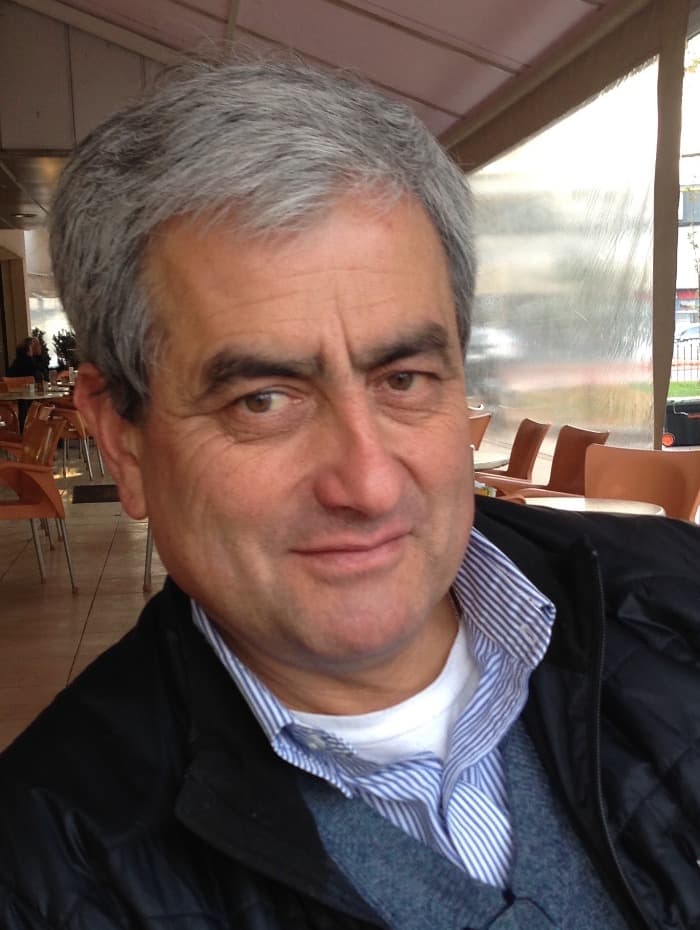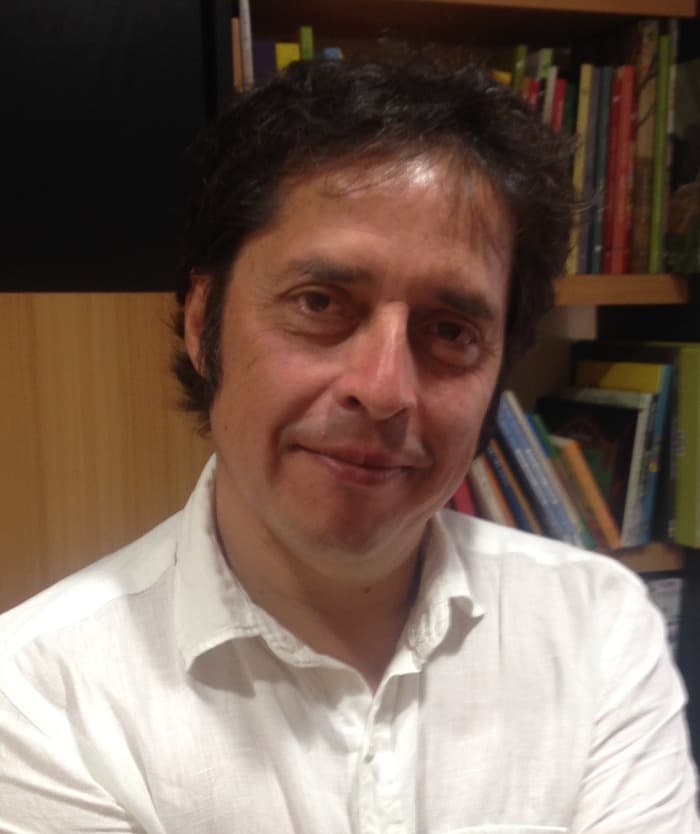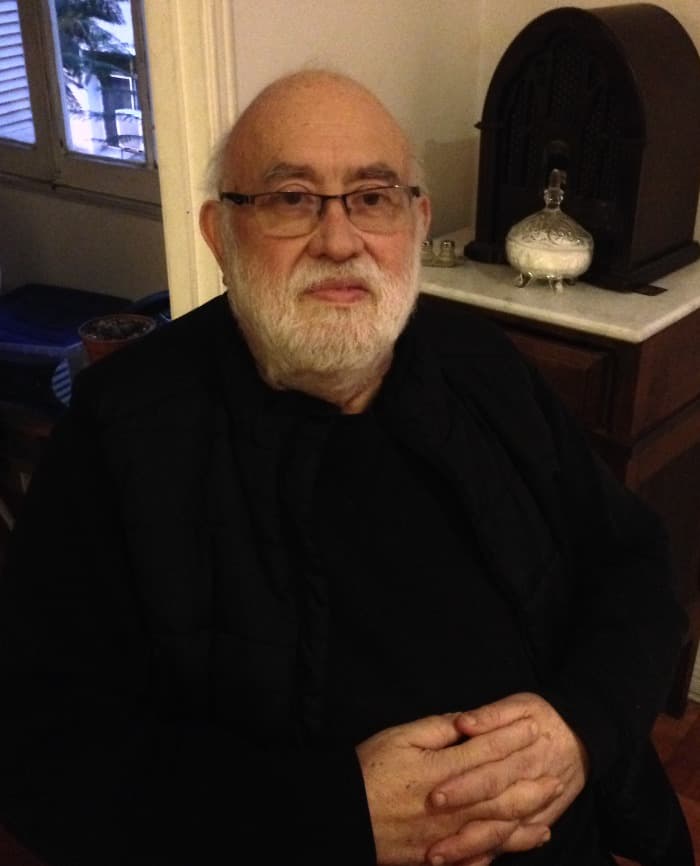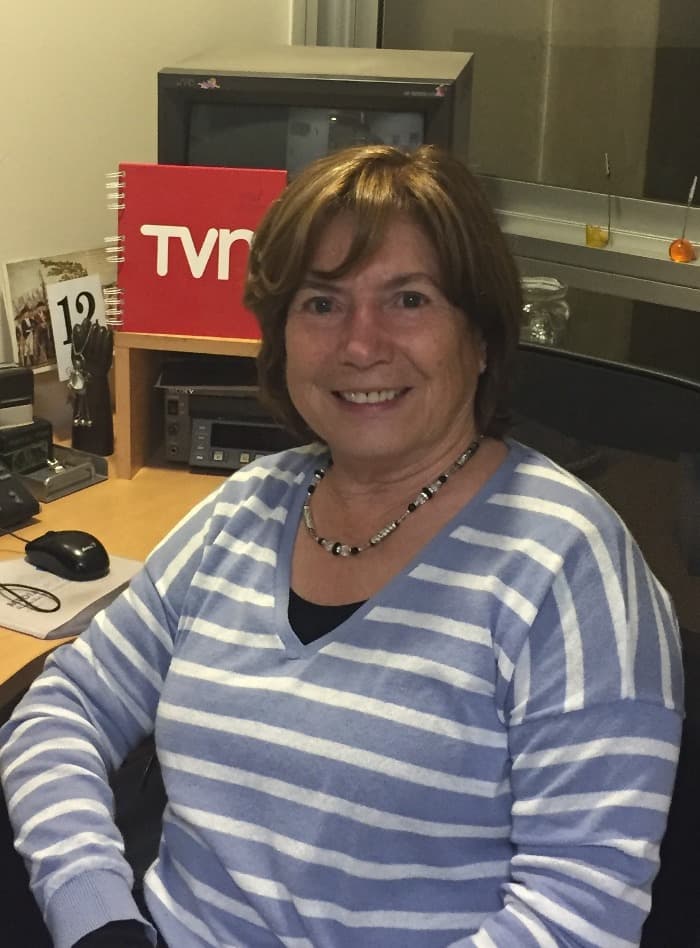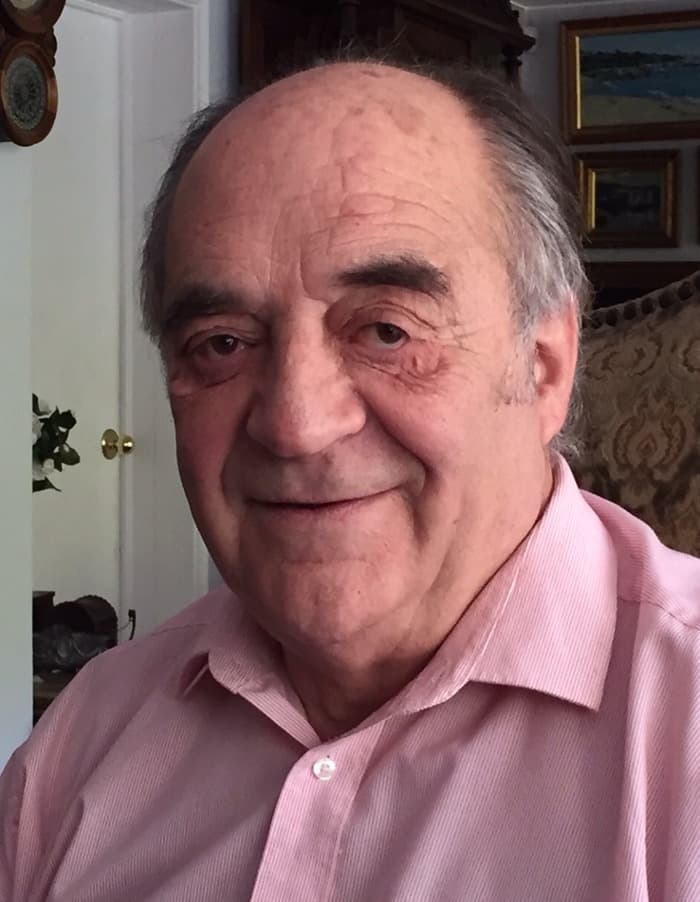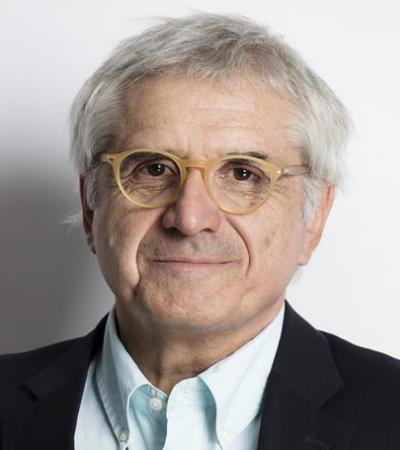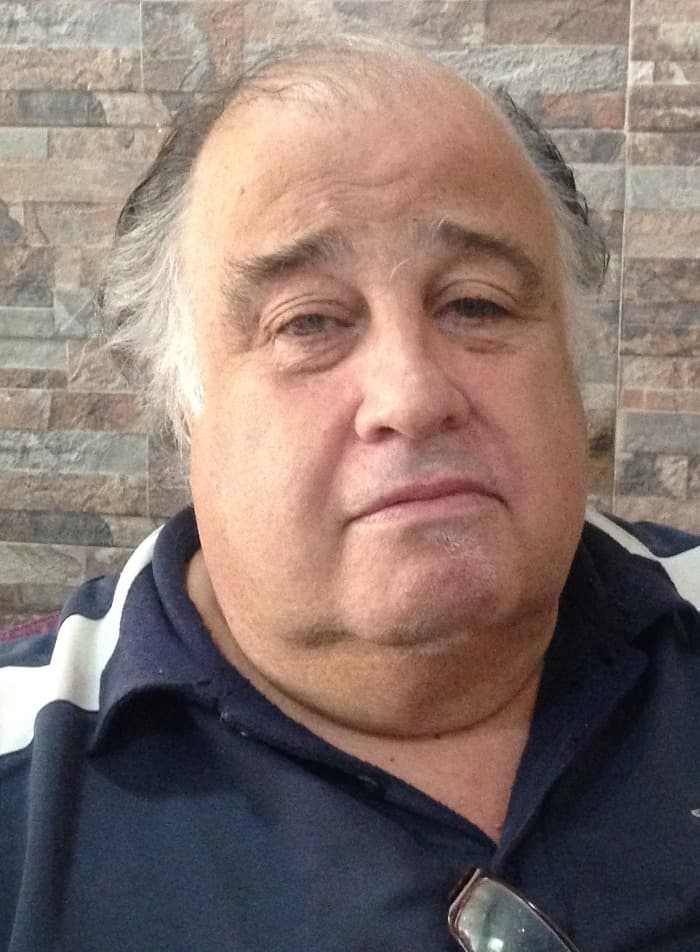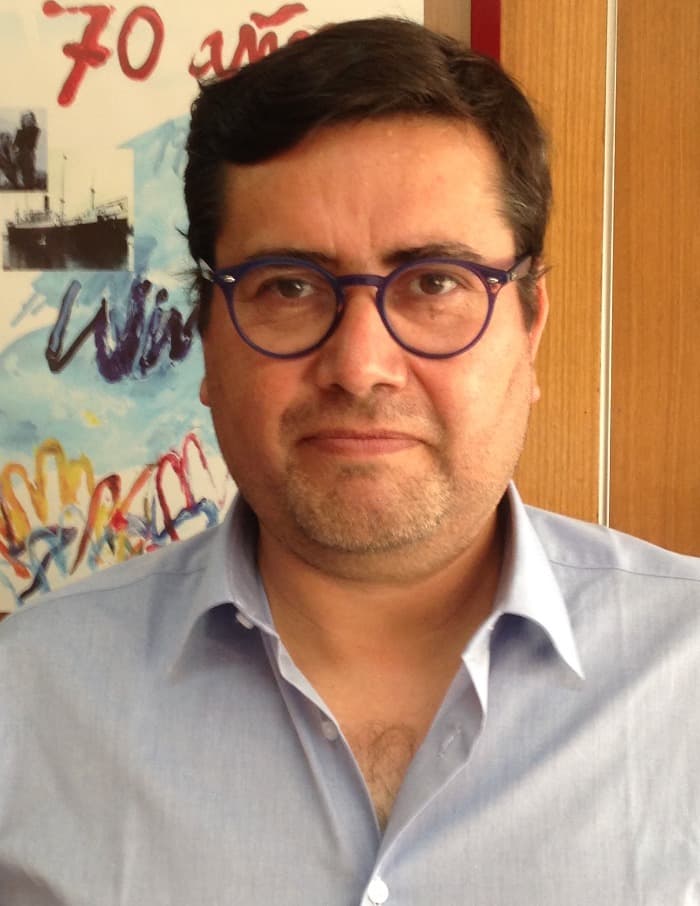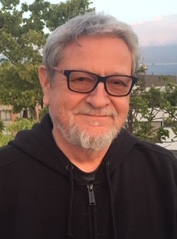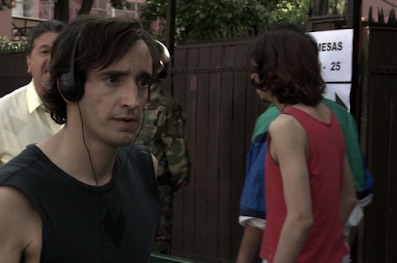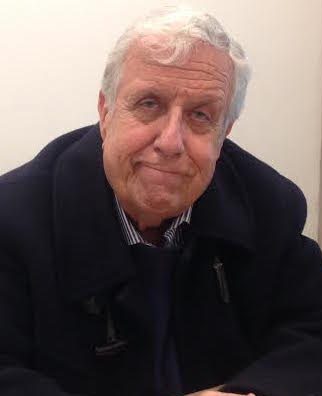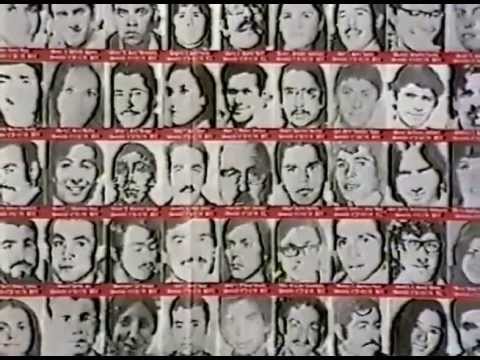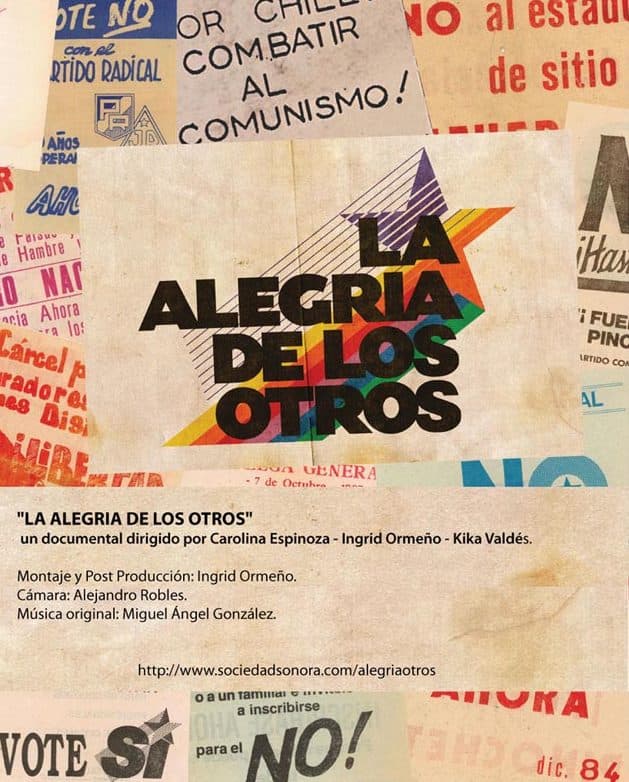Luis Niemann
It was conceived from the beginning that a plebiscite was going to be called […]. What had been agreed in the constitution was enforced. And if the plebiscite was unfavorable and the NO won, well, it had to be fulfilled.
Sergio Toledo
My mother was sleeping, and suddenly I say to her: “Mom, the NO won.” And his answer was: “That’s good, son, I hope we are calmer now.” That was his phrase. And then he went back to sleep.
Luis Mora
There was no one who came and told us: “hey, you have to worry about making a joke about this, about this other”. I don’t remember anything being said to me. We improvised within a strategic scheme. And I don’t remember ever being afraid. But not at all. No, we worked as if it were a soap campaign. So, with that looseness.
Ángela Vergara
There was a sense of empowerment, a sense of openness that we hadn’t experienced before. There was an atmosphere of fear but, at the same time, an atmosphere that something could be done. For the fifteen, sixteen, seventeen year olds it was like a new feeling of freedom.
Amira Arratia
For me, perhaps the most indescribable moment of happiness was entering the Canal and there was no armed guard. Because for seventeen years, we would go in and the guards were armed, and you would stand in line at the casino for lunch and see that they had guns in their pockets. But we had already gotten used to living like this. It was part of the landscape.
Raquel Malatesta García
For me it was better that he had followed the other eight years. Some things needed to be stabilized. So, I said, private universities had been created, but that final regularization was still missing when you put the projects in motion. Like the Isapres themselves. So, there was a series of projects that were coming up, which still had to be regularized a little more. And that was my decision as to why I wanted to continue with the military government.
Raquel Malatesta García Read More »
Ingrid Barrios Catró
Why did you vote YES? Because we had had 17 years of great tranquility after having spent three years in hell. And I didn’t want that again, when it was the option that the country offered me, right? The option was precisely to return to politicking, to return again to political parties, to political ideologies: to return to the ideology of the extreme left, Marxism […]. We were afraid that the situation that we constantly saw in Cuba could repeat itself.
Ingrid Barrios Catró Read More »
Javier Leturia
I think there was an effort -perhaps too trusting but that’s the way things were- in an absolutely transparent way to give it legitimacy. If the risk had been known, that is, if the risk had been better measured, perhaps the temptation would have been less transparency, but more security in victory.
Javier Luis Egaña
This program was called Bethlehem. It is a program that I believe that to this day people do not know. It was kept very confidential so that it would not be deleted. The government never understood what we were doing. […].Belén was born from a trip made by José and María (María about to have her son) to the place where they had to register. Coincidentally, the emperor at the time was called Augustus, just like the dictator here. So our big posters were to copy exactly what Lucas said (2, 1-4): Emperor Augustus has called a census where all the inhabitants have to register and participate.
Eugenio Tironi
We were very interested in dedramatizing this. Show that the act of voting NO was much more ordinary, much more within reach. Just put a line. Because otherwise, if we presented it as something too epic, people were going to think twice and eventually, they wouldn’t go to vote.
Pedro Sánchez
He invited me to announce two or three things, spots, very precise. And the message was very clear, wasn’t it: “No hate. No fear. No violence. Vote NO.” And that day I recorded and came home and commented to my wife: “Do you know what happened to me today? I took the boot off my head, the military boot off my head.” I lost my fear. So, for me the triumph is personal, intimate. So when the NO triumph came, of course I was happy, but I had felt the triumph before.
José Peña
My dad was military. So I lived in a place where only soldiers lived […]. I experienced the process of the plebiscite in a transition of leaving that place and going to a place as a civilian. In other words, to leave this town, from this place where only soldiers lived to a place where ordinary people lived.
Eugenio MacKay
I am a close friend of General Pinochet’s youngest son at that time […]. He voted for the YES, with his reluctance, because he found that the best thing that could happen was for the NO to win, since the country was in a kind of pressure cooker and needed to free itself a bit. And I was a little more to the right, I wanted the YES to win anyway. But I realized, as time passed, that the best thing that could have happened was that I won the NO.
Pablo Dittborn
He handed my passport to the cabin manager and told her: “You have to keep this passport until the plane has closed the doors and is about to take off” […]. Then people started to come up and everyone looked at me as if I were a deportee, a criminal, or I don’t know what. I wasn’t too worried either.
Marcelo Mella
What I can say is that effectively, despite the fear and despite the threat of being exposed as an opposition actor in a context of dictatorship, community relations in small towns, like Pichilemu, had other mediations. It had another meaning. Because, indeed, there was polarization. It was possible to recognize in a small town who was in favor of the YES and who was in favor of the NO, but it is also true that the experience of life in the province somehow attenuated the ideological divisions.
Eugenio Garcia
The next day when we went out to celebrate, people hugged the carabineros. And I said, now, here we win. This is the real win. Because the people – who had been repressed and who looked at the carabineros as the closest representatives of this omnipotent power – instead of making fun of them, instead of attacking them, embraced them, that is the true triumph of that campaign.
Yes or no? Yes or no? 12 days that shook Chile (2011)
This series narrates important milestones in the history of Chile. Chapter 5 of the first season focuses on the day of the plebiscite. Directed by Marcelo Ferrari, Buen Puerto and Invercine Producciones
Yes or no? Yes or no? 12 days that shook Chile (2011) Read More »
Patricio Bañados
Since my wife worked at the Dutch Embassy, she had spoken with the ambassador so that if things got very, very terrible, I could jump over the wall and go to the embassy […]. He said, “Tell me no more. I already know. Maybe Don Patricio will come and have a drink of whiskey with me.”
The TV of the NO (1999)
This documentary focuses on the important role that the television slot played in the success of the NO campaign, which began the transition to democracy in Chile. The documentary includes interviews with professionals and creatives who worked on the campaign, including José Manuel Salcedo, Juan Forch and Ignacio Agüero. Directed by Juan Forch.
The TV of the NO (1999) Read More »
The Victory of Dignity (1999)
This documentary examines the widespread repression of the military regime, including several of the most emblematic cases of human rights violations. Then, it narrates the journey of the social and political forces towards the campaign for the 1988 plebiscite, culminating in the victory of the NO. Directed by Dragomir Yankovic. (Museum of Memory and Human Rights)
The Victory of Dignity (1999) Read More »
The Joy of Others (2009)
This documentary examines the role of exile, the world of culture and the international press in the success of the NO campaign that marked the beginning of the return to democracy in Chile. How was the day of October 5 experienced from the different countries of exile? What do those who did not return think of today’s Chile? Directed by Carolina Espinoza Cartes, Ingrid, Ormeño and Kika Valdés.
The Joy of Others (2009) Read More »

